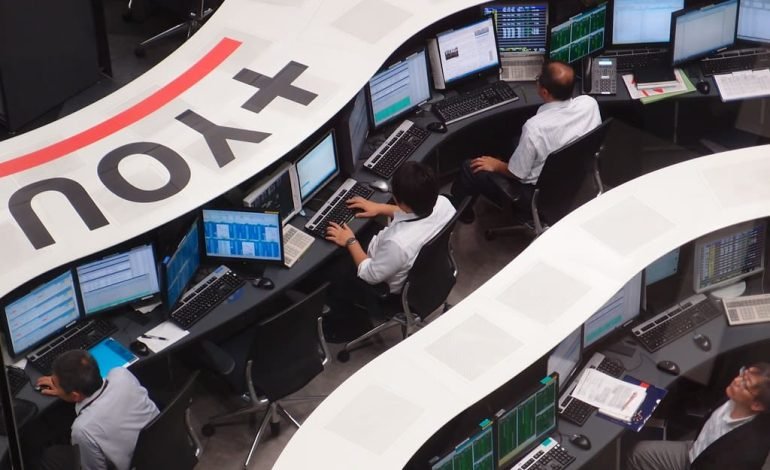Asian Stock Markets Tumble Amid Global Economic Concerns

In a dramatic start to the week, Asian stock markets plummeted on Monday, following significant declines in major global indexes from the previous week. This wave of sell-offs was initiated by Japan, where the Nikkei 225 index experienced a historic drop of 12.4%, equating to a loss of 4,451 points. The broader Topix index mirrored this fall, losing 12.2%.
This market turbulence was sparked by the release of weak US jobs data on Friday, which raised alarm bells about the strength of the world’s largest economy. Adding to the pressure, the yen has been gaining strength against the US dollar since the Bank of Japan raised interest rates last week, making Tokyo stocks pricier for international investors. Kei Okamura, a Tokyo-based portfolio manager at Neuberger Berman, remarked, “The selloff was instigated by the sharp appreciation of the yen as global investors turned cautious on Japanese corporate earnings, especially those of exporters such as automakers.”
Over the past month, the yen has appreciated by more than 10% against the US dollar. This surge in value has made Japanese products more expensive and less appealing to overseas buyers. Unlike the Bank of England and the European Central Bank, which have maintained more cautious stances, the Bank of Japan recently raised interest rates to their highest level since the 2008 global financial crisis. This decision came as inflation in Japan exceeded expectations in June and the economy contracted in the first quarter due to a weaker yen and sluggish household spending.
The impact of Japan’s market troubles was felt across the Asia-Pacific region. Taiwan’s main share index and South Korea’s Kospi both plunged more than 8%. India’s NSE Nifty 50 was down by 2.8%, and Australia’s S&P/ASX 200 fell about 3.6%. In Hong Kong, the Hang Seng dropped 2.5%, while the Shanghai Stock Exchange was down 1.4%.
The cryptocurrency market wasn’t spared either. Bitcoin fell to around $50,000, its lowest level since February.
The cascade of market declines continued from the previous Friday when US stocks fell sharply. Official jobs data revealed that US employers added only 114,000 jobs in July, far below the expected figure. This sparked fears that the long-running jobs boom in the US might be losing momentum, fuelling speculation about potential interest rate cuts by the Federal Reserve.
Despite recent data showing the US economy expanding at an annual rate of 2.8%, concerns about an economic slowdown persist. Shanti Kelemen, chief investment officer at M&G Wealth, commented on the BBC’s Today programme, “You can pick out evidence to create a positive story, you can also pick out the evidence to create a negative story. I don’t think it universally points to one direction yet.”
Global markets were already jittery over high borrowing costs and signs that the long-running rally in share prices, driven partly by optimism over artificial intelligence (AI), might be fizzling out. Friday’s decline in the Nasdaq brought the index down about 10% from its most recent peak—a drop known as a “correction,” which occurred within just a few weeks. The Dow Jones Industrial Average and the S&P 500 also fell by 1.5% and 1.8% respectively, following market declines in Asia and Europe.
Adding to the market uncertainty, over the weekend, Warren Buffett’s firm Berkshire Hathaway announced that it had sold about half its stake in US technology giant Apple, further unsettling investors.
For further insights on global market trends, visit the Financial Times.









